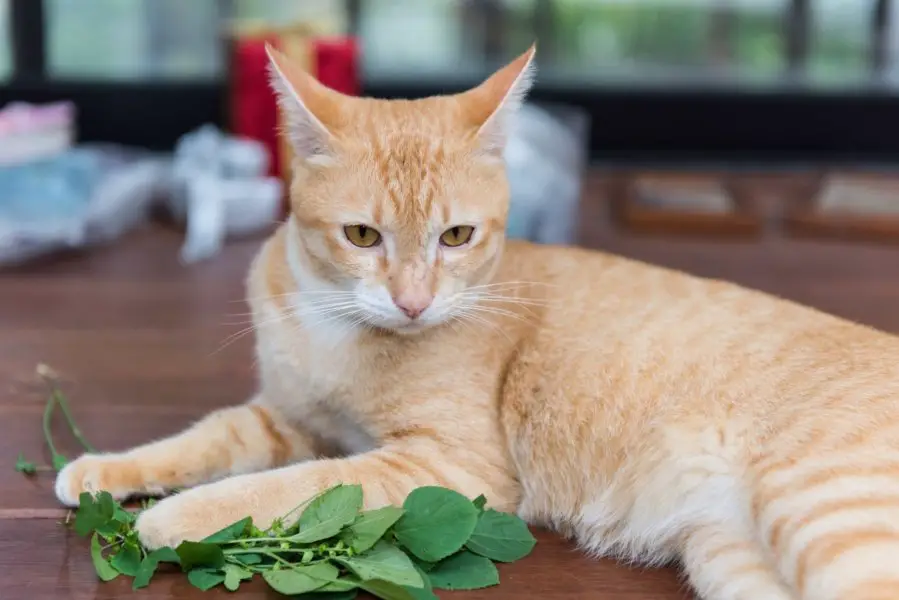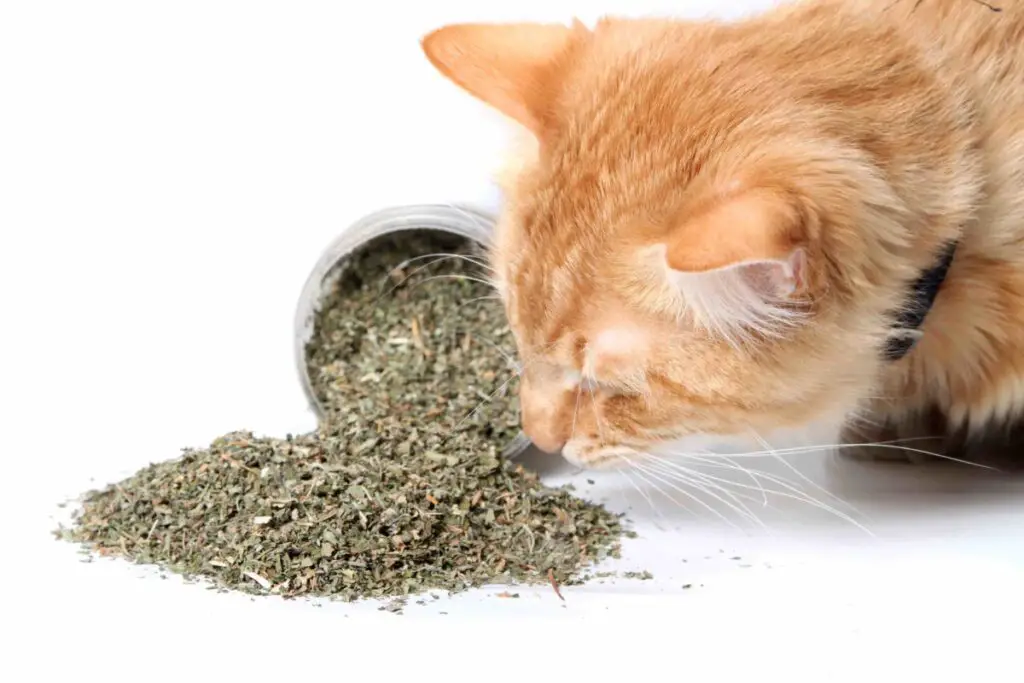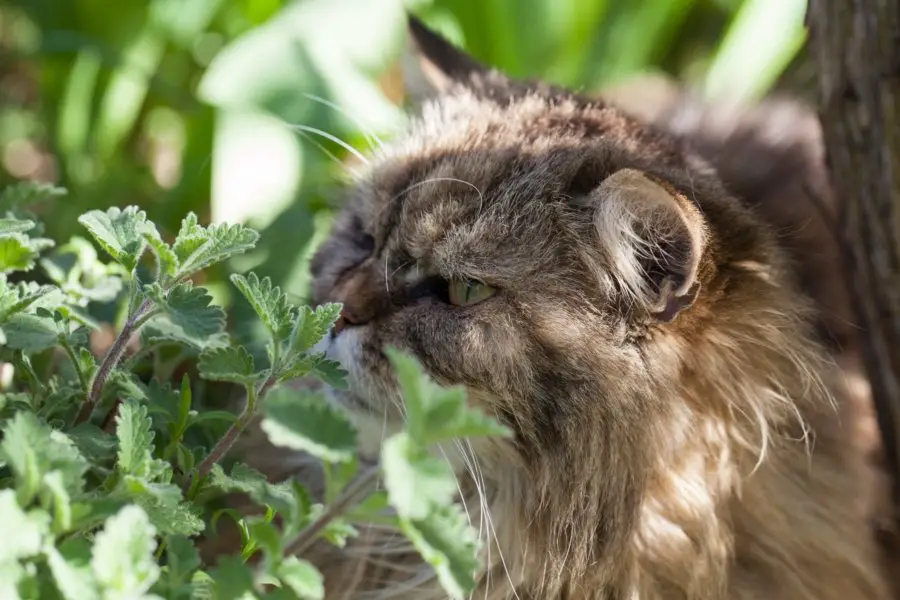 Odds are, if you’re reading The Catnip Times, you probably let your feline friend use catnip every now and then. However, many people wonder if Nepeta cataria, more commonly known as catnip, is dangerous or addictive for their cats. With the way our cats go crazy over catnip, it’s easy to see why it might appear that way. Luckily, we have nothing to worry about; catnip isn’t addictive, and is relatively harmless for most cats. But if catnip isn’t addictive, why do our cats love it so much?
Odds are, if you’re reading The Catnip Times, you probably let your feline friend use catnip every now and then. However, many people wonder if Nepeta cataria, more commonly known as catnip, is dangerous or addictive for their cats. With the way our cats go crazy over catnip, it’s easy to see why it might appear that way. Luckily, we have nothing to worry about; catnip isn’t addictive, and is relatively harmless for most cats. But if catnip isn’t addictive, why do our cats love it so much?
Catnip and similar catnip sprays contain the chemical nepetalactone, which acts as an attractant for cats. Nepetalactone is closer to a pheromone than a drug, which is why cats can’t really become addicted to catnip itself. Instead, the pheromone triggers a chemical release in the brain that isn’t habit forming, and is more for enjoyment than anything else. Studies show that cats are biologically programmed to respond to catnip, although we don’t exactly know why. While we may not know the exact reason cats are so attracted to catnip, it still serves as a great way to help cats relax, unwind, and have some fun.

Catnip produces different effects depending on the way your cat ingests it. Some cats prefer just to smell and roll around in catnip, as the scent is the most potent aspect of catnip. Once cats inhale nepetalactone, it triggers responses in multiple parts of the brain, like the olfactory bulb which processes scents, the amygdala, which is responsible for emotion and decision making, and then the hypothalamus, the part of the brain which controls the body. Because smelling catnip affects so many different parts of the brain, it’s no wonder that our cats seem crazy when they get ahold of catnip.
Cats can also ingest catnip, although this is less common. When your cat ingests catnip, you might notice some drooling or sleepiness, which is sometimes followed by short bursts of anxiety. Ingesting catnip usually produces a much more potent affect, but it isn’t all that dangerous. If your cat ingests catnip, just be aware of how much they actually eat. Some cats are allergic or have sensitive systems, which can result in vomiting or diarrhea. If your cat likes to eat catnip, you can crush it into smaller, more easily digestible pieces and keep an eye on him or her as they snack on it. Your cat will likely be just fine, but some extra precaution never hurts.

Some readers may have noticed that their cats seem uninterested in catnip. They’re not alone – up to a third of cats aren’t affected by catnip. Another factor that differentiates a cat’s love for catnip from addiction is that their affection for the substance appears to be mostly inherited through genetics. For example, most cats in Australia aren’t affected at all by catnip, yet a majority of cats in the United States are. Even more interesting is that house cats aren’t the only ones affected by catnip. Many big cats like lions and leopards are extremely susceptible to catnip just like their smaller, friendlier cousins.
If your cat is not genetically predisposed to smell catnip, never force it. You will never change your cat’s genetics. Forcing catnip on an uninterested cat is cruel and becomes more about your enjoyment and entertainment than the well-being of your cat.
Catnip isn’t dangerous, and it certainly isn’t addictive. We’ll never see rehab centers or treatment plans for catnip addiction, but that doesn’t mean you should over-indulge your cat in catnip. Cats can become desensitized to it, and too much exposure could cause them to become temporarily sick. For the most part, catnip is a fun and safe way for your cat to unwind and have fun. Don’t worry about a catnip addiction; instead, let your cat enjoy catnip in moderation. Many are biologically programmed to enjoy it. And for those that are not sensitive to it, never force it on them.
Sources
https://www.myhealthycat.com/catnip-addiction.html
https://healthypets.mercola.com/sites/healthypets/archive/2012/01/12/catnip-fun-facts.aspx
https://www.ncbi.nlm.nih.gov/pmc/articles/PMC1480656/
About the author
Victor Ulhman, Writer & Photographer
Victor is a writer, photographer, and film aficionado living in Detroit, MI. He currently blogs about drug and alcohol addiction, and how to move beyond them. You can find him on his days off watching Game of Thrones with his cat, or arguing about how to best cook a steak.
